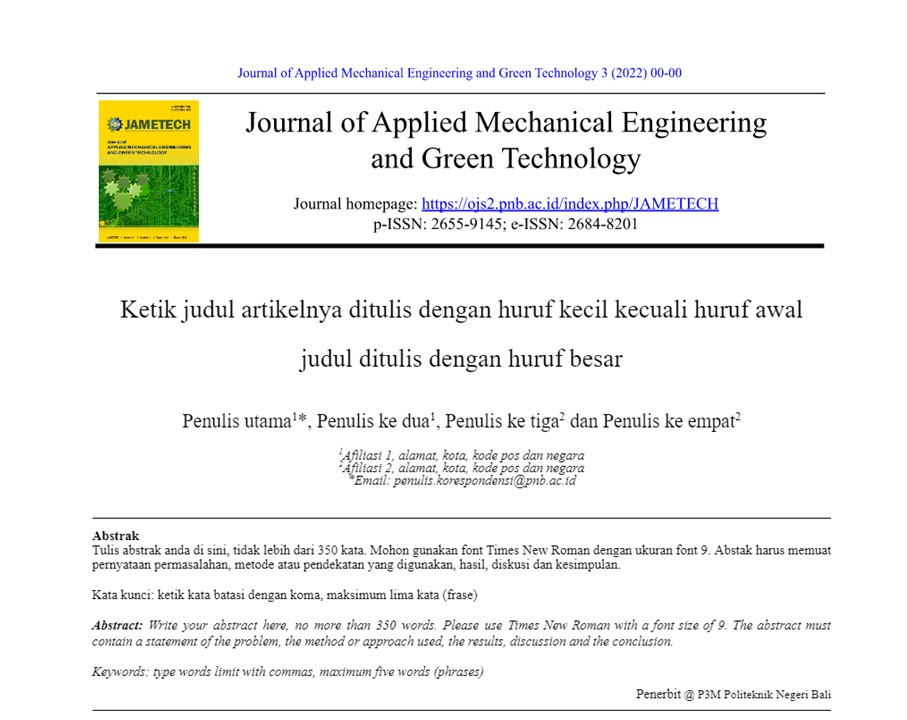Kajian termodinamik kinerja AC split: studi kasus pada bangunan pendidikan dengan menerapkan program komputer
DOI:
https://doi.org/10.31940/jametech.v3i1.36-42Keywords:
thermodynamic study, condensing temperature, evaporating temperature, energy performance, split AC systemAbstract
This paper presents a thermodynamic study on energy performance of a split AC system with R-32 for the application of educational buildings at the Bali State Polytechnic. The study was conducted using a standalone computer program U-CoolS V.1.12 which was developed on the EES (Engineering Equation Solver) V11,334 program. A thermodynamic model was developed and validated using data from the technical specifications of various types of split AC. Thermodynamic studies were carried out based on variations in ambient temperature in the Bali Region. The effect of two operating parameters of a split AC system, namely the condensing temperature in the condenser and the evaporation temperature of the refrigerant in the evaporator, on the compressor performance and energy performance of the AC system is simulated. Thermodynamic simulation results show the strong influence of condensing temperature and evaporation temperature on compressor performance and overall energy performance of the split AC system. It was found that for 1 °C increase in condensing temperature, the compressor power increased quite significantly around 2.1%, the cooling capacity of the split AC system decreased by 1.8%, COP and EER also decreased by 3.9%. Meanwhile, for 1 °C increase in evaporation temperature, it was found an increase in compressor power consumption of around 0.31%, an increase in cooling capacity of 4.4% and an increase in COP and EER of 4.1%. The results of this thermodynamic study also show that the split AC system performance using R-32 refrigerant has a very good COP range from 3.27 to 5.95 with the implication that R-32 refrigerant has the potential to be a refrigerant for a split AC system.







